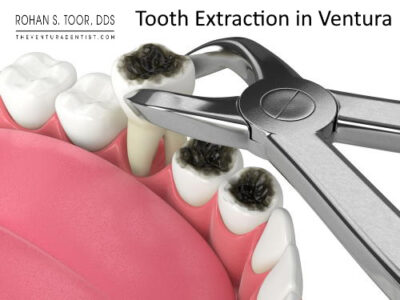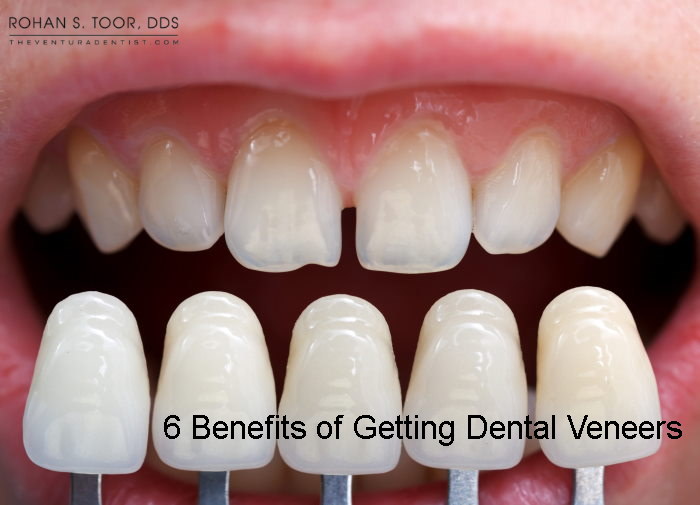Why Tooth Extractions are Sometimes Necessary

A tooth extraction is a dental professional’s last resort to treat the problems of your tooth. Tooth extraction is a procedure to completely remove one or more of your teeth from your mouth. Your tooth needs to be extracted if it is beyond repair or severely decayed. Your mouth becomes vulnerable to infections and bacteria if you choose to avoid a tooth extraction. An infected tooth that remains in your mouth increases your chance of getting a tooth abscess. A tooth abscess is a pus-filled pocket caused by bacteria. Dentists treat the underlying conditions first, such as performing root canals, getting rid of cavities, or any other treatment before they resort to extracting your tooth.
How Do You Know When a Tooth Needs to Be Pulled?
Tooth pain, jaw pain, and a recurring history of gum disease are all signs that your tooth needs to be extracted. Extraction is necessary when there are no available treatments to save the tooth and you are experiencing pain or infection. Tooth extraction will be needed if your tooth becomes severely decayed. Dentists suggest a tooth extraction if your tooth is past repair. A tooth extraction is necessary to maintain your oral health. A crowded or impacted tooth needs to be pulled to prevent pain and infection. An evaluation is done by your dentist to evaluate the state of your tooth and see if tooth extraction is necessary.
Severe Tooth Decay
A severely decayed tooth needs to be extracted to prevent infections from spreading throughout your mouth. Tooth decay is the destruction of tooth enamel, which is the hard, outer layer of your teeth. Tooth decay occurs when a cavity forms on the tooth. A cavity is a permanently damaged area that creates a hole in the tooth. A cavity develops from eating too much sugary food or a lack of oral hygiene. Severe tooth decay left untreated leads to tooth loss and infections. Severe tooth decay is recognizable by the appearance of discoloration or holes in your tooth.
Impacted Tooth
An impacted tooth that causes pain needs to be extracted. An impacted tooth is a tooth that has not erupted from the gums or grown into position. An impacted tooth that did not develop normally, causes gum pain, jaw pain, swelling, and headaches. A tooth extraction needs to be done to an impacted tooth to prevent pain and damage to your other teeth.
Gum Disease
Gum disease is an infection that damages the gum and the bones supporting the teeth. Severe gum disease causes toothaches, swelling, and bleeding. Tooth extraction is needed if your gum disease has progressed beyond repair. Gum disease is caused by buildup of plaque on the teeth and poor oral hygiene habits. Gum disease that is left untreated causes tooth loss and the spread of an infection.
Teeth Overcrowding
Teeth that are overcrowded and cause discomfort need to be extracted. Teeth crowding is when there’s not enough space for all the teeth to naturally fit within the jaw. Teeth crowding makes oral hygiene harder and leads to bacteria growth.
Infection
A tooth infection causes pain and excessive bleeding in the mouth. A severe infection of a tooth leads to a tooth abscess which is a pocket of pus caused by bacteria. Tooth infections left untreated lead to an infection that causes pain in other parts of your head. Tooth extraction is often the last resort for the dentist. Tooth extraction removes the infected tooth, relieves your pain, and makes way for a healthier smile.
Accident
Unexpected accidents and sports injuries can cause a healthy tooth to become loose or fall out. There is a possibility to save a healthy tooth by re-attaching it. But sometimes an accident causes the tooth to be too damaged to save. In this case, tooth extraction is a necessary part of the recovery process. Otherwise, a damaged tooth can become severely infected and may require a procedure such as a root canal that can be just as painful.
Should I Save My Tooth or Extract It?
Tooth extraction is necessary if your tooth is too damaged to be repaired. Saving your tooth is an option, only if the tooth is not severely infected. The decision to save your tooth ensures that you maintain your appearance and avoid a gap in your smile. Infections and bacteria will spread throughout your mouth if you choose to refuse a tooth extraction. An infection enhances the risk of an abscess which is a pocket of pus caused by a bacterial infection. An abscess that is left untreated, causes infections that spread to other parts of your head.
Learn more about
How to Save Money on Tooth Extraction
What Happens if You Don’t Extract Teeth?
Bacteria will spread if you choose to not get an extraction when needed. The spread of bacteria results in a serious infection. An infected tooth causes damage to the neighboring teeth and gums. A serious tooth infection leads to pain in other areas of your head and affects your oral health.
What is Considered an Emergency Tooth Extraction?
You should seek an emergency tooth extraction when you have intense pain or a severe infection. An emergency tooth pulling is required when it is absolutely necessary that a tooth be removed within a 24 to 48-hour period. You are able to contact your dentist and make a regular appointment for a tooth extraction that is not an emergency. Make an emergency dental visit, if you are experiencing severe tooth pain or intense bleeding.
Can Cavities Lead to Tooth Extraction?
Yes, cavities that are left untreated lead to tooth extractions. Your dentist will conduct an exam using x-ray and probing tools to check for signs of a cavity. Once the cavity is confirmed, your dentist will treat the cavities before it gets worse.
Can I Avoid a Tooth Extraction?
Yes, you can avoid tooth extraction, if your tooth is not beyond repair or severely decayed. A tooth extraction is a dentist’s last option to restore your oral health and prevent infection. The American Dental Association (ADA) recommends you brush your teeth, floss, and use a mouthwash to maintain your oral hygiene. Make sure you take regular dental visits to catch any infection or bacteria in the mouth during its early stages.
Can Teeth Be Fixed Without Extraction?
Yes, your tooth can be fixed without extraction depending on the level of damage that has occurred. A tooth that is severely decayed or infected needs to be extracted to prevent the spread of infection. A root canal is an alternative to treat an infected tooth before it is beyond repair. Take care of your teeth and develop good oral hygiene in the early stages before severe decay occurs.
What more is there to know regarding tooth extraction in addition it is necessary?
Tooth extraction is
removing a tooth damaged or infected and that cannot be saved with other treatments. It is a common dental procedure that may be recommended for a variety of reasons, such as tooth decay, gum disease, or overcrowding. At Rohan S. Toor, DDS, we can help you with any questions related
how much is tooth extraction, it’s benefits, aftercare and more. Dr. Rohan Toor at
Rohan S. Toor, DDS is a dentist who is dedicated to improving the condition of his patient’s teeth.
Dr. Rohan Toor will guide you through the tooth extraction process and help you restore your oral health.
 A tooth extraction is a dental professional’s last resort to treat the problems of your tooth. Tooth extraction is a procedure to completely remove one or more of your teeth from your mouth. Your tooth needs to be extracted if it is beyond repair or severely decayed. Your mouth becomes vulnerable to infections and bacteria if you choose to avoid a tooth extraction. An infected tooth that remains in your mouth increases your chance of getting a tooth abscess. A tooth abscess is a pus-filled pocket caused by bacteria. Dentists treat the underlying conditions first, such as performing root canals, getting rid of cavities, or any other treatment before they resort to extracting your tooth.
A tooth extraction is a dental professional’s last resort to treat the problems of your tooth. Tooth extraction is a procedure to completely remove one or more of your teeth from your mouth. Your tooth needs to be extracted if it is beyond repair or severely decayed. Your mouth becomes vulnerable to infections and bacteria if you choose to avoid a tooth extraction. An infected tooth that remains in your mouth increases your chance of getting a tooth abscess. A tooth abscess is a pus-filled pocket caused by bacteria. Dentists treat the underlying conditions first, such as performing root canals, getting rid of cavities, or any other treatment before they resort to extracting your tooth.

